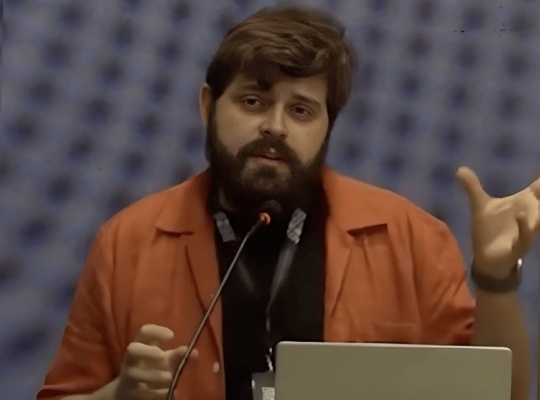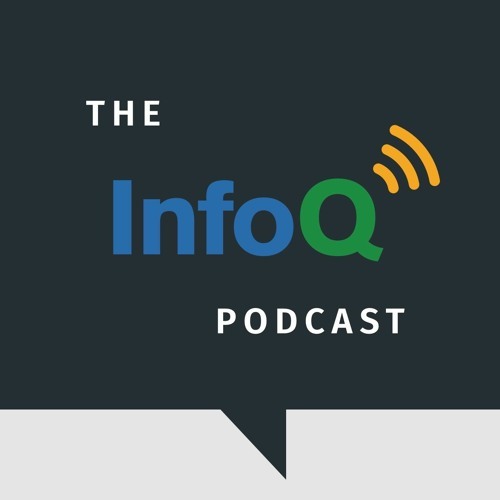Codetown
Codetown ::: a software developer's community
I was chatting with Henry Story, creator of Babelfish, the translation engine, just after he presented his current work at the Social Web Barcamp conference in Paris, France. He directed me to his talk about the state of the Semantic Web, http://blogs.sun.com/bblfish/entry/camping_and_hacking_at_har2009 and suggested I view the video online of his talk using Firefox 3.5. The one I am referring to is the first of the 4 on his blog post. What's interesting is that you don't even see these .ogg format videos using another browser than Firefox 3.5, for example Camino on the Mac doesn't render these videos visible at all!
As an aside, Henry points out the Barcamp guidelines, which we'll follow at the upcoming OrlandoJUG meeting Thursday:
* Everybody is a participant
* You make the event
* Feel free to move between sessions if you feel you are not getting what you were looking for at one of them
* Write up your interests on the black board, this will be used to create the time table.
So the sessions were put together on the spot there and then. That seems "hard" but in my experience it's always a great time, and so much better than the norm.
His mention of Metcalfe's Law was an interesting sidenote. He discussed with me the idea of using FOAF + SSL as a single point of entry and signup for a social network. I'm just beginning to understand what he's talking about, and it's phenomenal! Have any of you explored the possibilities of the Friend of a Friend project and possibly used it on a website? Let's discuss...
Tags:
Replies to This Discussion
-
Permalink Reply by Carol McDonald on September 23, 2009 at 11:03am
-
using metadata about users on the web has been in discussion for ~ 10 yrs. FOAF is interesting but I think whoever gets the most users will get the most developers, like the Facebook api or googles open social.
http://www.softwaredeveloper.com/features/welcome-to-opensocial-040... -
-
Permalink Reply by Carol McDonald on September 25, 2009 at 11:53am
-
I worked for years on implementing OSI's protocols for X.400 email , X.500 directory, CMIP network managment. X.400 was eventually replaced by SMTP not because SMTP was a better protocol , but because more people were using it. What I learned about standards... the ones that succeed are the ones that have the widest implementation and use.
-
-
Permalink Reply by Carol McDonald on September 25, 2009 at 11:54am
-
ADA is another example, remember that
-
-
Permalink Reply by Michael Levin on September 25, 2009 at 12:09pm
-
What's ADA, Carol?
Carol McDonald said:ADA is another example, remember that -
Notes
Welcome to Codetown!
 Codetown is a social network. It's got blogs, forums, groups, personal pages and more! You might think of Codetown as a funky camper van with lots of compartments for your stuff and a great multimedia system, too! Best of all, Codetown has room for all of your friends.
Codetown is a social network. It's got blogs, forums, groups, personal pages and more! You might think of Codetown as a funky camper van with lots of compartments for your stuff and a great multimedia system, too! Best of all, Codetown has room for all of your friends.
Created by Michael Levin Dec 18, 2008 at 6:56pm. Last updated by Michael Levin May 4, 2018.
Looking for Jobs or Staff?
Check out the Codetown Jobs group.
InfoQ Reading List
Presentation: Theme Systems at Scale: How To Build Highly Customizable Software

Guilherme Carreiro discusses the architecture behind Shopify’s theme system, focusing on balancing extreme customizability with platform stability. He explains how they leverage Liquid as a safe DSL, optimize performance via native extensions (Rust/C), and use JSON schemas to bridge the gap between developers and merchants.
By Guilherme CarreiroArticle: Virtual Panel - AI in the Trenches: How Developers Are Rewriting the Software Process

This virtual panel brings together engineers, architects, and technical leaders to explore how AI is changing the landscape of software development. Practitioners share their insights on successes and failures when AI is incorporated into daily workflows, emphasizing the significance of context, validation, and cultural adaptation in making AI a sustainable element of modern engineering practices.
By Arthur Casals, Mariia Bulycheva, May Walter, Phil Calçado, Andreas KolleggerPodcast: Startup Software Architecture - You Never Really Throw It Away: A Conversation with David Gudeman

In this podcast, Michael Stiefel spoke with David Gudeman about software architecture for startups. The discussion starts by illuminating how to make decisions with imperfect information, and how uncertainty and ambiguity flow through all aspects of developing the architecture. This leads to analyzing how the architect must focus on both product strategy and technical decisions.
By David GudemanRust Contributor Explores AI-Assisted Compiler Development with New Rue Language

Innovative programmer Steve Klabnik, known for his contributions to Rust, unveils Rue, a new systems programming language that enhances memory safety without garbage collection. Designed with developer ergonomics in mind, Rue leverages "inout" parameters to simplify ownership management while collaborating with Anthropic's Claude AI to expedite development. Explore Rue at rue-lang.dev.
By Steef-Jan WiggersGoogle Releases Gemma 3 270M Variant Optimized for Function Calling on Mobile and Edge Devices

FunctionGemma is a new, lightweight version of the Gemma 3 270M model, fine-tuned to translate natural language into structured function and API calls, enabling AI agents to "do more than just talk" and act.
By Sergio De Simone
© 2026 Created by Michael Levin.
Powered by
![]()